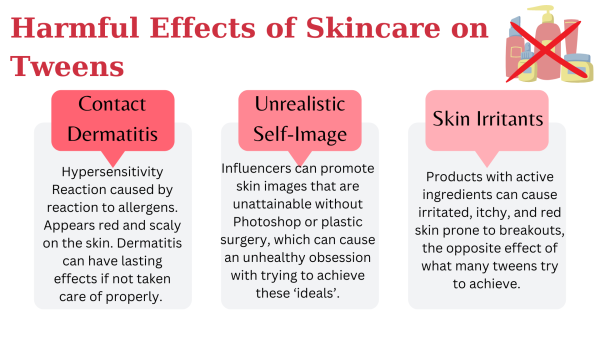Comprehensive sex ed is essential for schools
Sex is an undeniable focus of mainstream media. Whether its raunchy lyrics in a song, or an explicit movie scene, or a parent having the “talk” with their kid on tv, sex is everywhere, all the time. Even though it is everywhere, most Americans aren’t properly educated about it. America’s leaders have been divided for decades on how to handle sex education in public schools, which is a leading cause of the sexual ignorance that many Americans have.
There are essentially two main sides of the discussion; comprehensive sex education, and abstinence only education. Another way to phrase it? Liberals versus conservatives. Sex education, as with most matters, is one of politics. The state decides what students learn, or in this case, what they do not learn. Each individual state makes its own decision of what to teach in schools, and this is either for the better, or for the worse.
Simply speaking, comprehensive sex education is the practice of teaching students about what sex is, how to prevent diseases related to it, how to have it safely, and the many options, decisions, and lifestyles related to it.
Some lesson plans in a comprehensive classroom would include STD’s, birth control, condoms, and sexual orientation. Children would leave the class with a knowledge of how to protect their bodies, and their futures, from unwanted side effects of having sex.
On the other hand, many states have opted for abstinence-only education, which is exactly what it sounds like. Students are simply taught, “Don’t have sex.” End of discussion. They aren’t taught about the dangers of sexually transmitted diseases and how to prevent them, nor are they taught how to lower their risk of unwanted pregnancies.
According to “Sex Education Should Not Be Taught in Schools” by Eric Badertscher, those who stand on this side of the argument feel schools should have absolutely no say in the sex education of students. This is due mainly to religious beliefs, and the thought that morality lessons should be left to the family to discuss.
From a 2014 Huffington Post study, twenty-seven states do not require sex education. In 38 states, sex education is not required to be medically accurate. In 19 states, lessons on abstinence are legally required, but lessons on contraception in those states are not. According to a 2006 study from Guttmacher.org, 1/3 of teens had received absolutely no form of sex education whatsoever.
Studies from the Huffington Post show that states with abstinence only, or no sex education at all, have the highest teen pregnancy and sexually transmitted disease rates in the country. This is solid proof that teaching abstinence does not work. Teens are going to have sex anyway, and the current systems in place only prevent them from doing so safely.
The clear solution to lowering both the teen pregnancy rates, unwanted pregnancies in general, and sexually transmitted diseases, is to implement comprehensive sex education nationwide. This would mean many things, but most of all, it would mean change. Schools would take on the responsibility of educating America’s youth on more than just sex, but on their own personal safety, and to rid some of the ignorance many Americans have.
If comprehensive sex education were to be the norm in school, kids would be taught not only about safe sex, but about the many facets of sexuality, and responsibility to their fellow humans.
According to Laci Green, a renowned sex positivity activist, “It is essential that we learn acceptance in our formative years so we are better able to understand the world around us and the people in it.”
This relates to comprehensive sex ed, in that students would learn about people of different sexual orientations, and would be able to accept lifestyles different from their own, thus diminishing prejudices of people on the LGBTQ+ spectrum.
I asked some of our wildcats what they think about sex ed, and the answer was unanimous; it needs to get better. Many students felt that sex education programs, in addition to contraception information, needed to inform students more about gender, sexuality, and anatomy.
“I’ve been in class with people who don’t know what their own body parts are composed of, and thats actually a pretty huge problem.” said senior Kayla Baker.
Junior Ciel Kemp stated,“I know I’ve heard a lot of guys around that have absolutely no idea about female anatomy, what it looks like, how it functions, or anything. I feel like that’s something they should have learned in sex ed, but obviously they haven’t.”
Not knowing about anatomy is only one of the issues brought up by Wildcat students. Olivia Spears said, “I wish they would teach more about gender and sexuality. A lot of kids here don’t understand gender outside of the binary male and female, and that makes it hard for queer, nonbinary, and agender kids to navigate socially.”
Many of the interviewed students felt angry about the systems in place, and a strong desire for change to take place. Senior Lizzie Wilson said, “They’re not thorough enough in classes, and all they teach is abstinence is the only way. They’re not explaining what happens if you have sex, or how to do it responsibly. But kids are doing it anyway, and its dangerous for them to not know how to handle the consequences, or be responsible enough to avoid them in the first place.”
Students are desperate for change. Sex education is hugely important, and many of us feel we are being deprived of basic knowledge to guide us through life. Change must happen, or future generation to come will be left with not entirely accurate information, and will not have the skills to make responsible decisions with their own bodies. Comprehensive sex education is essential to have, whether it be avoiding diseases, or being more well rounded in the understanding of other people.
Your donation will support the student journalists of Normal West High School. Your contribution will allow us to purchase equipment and cover our annual website hosting costs. We are incredibly thankful for your generous donation!








